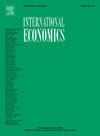Does tax incentive improve corporate resilience?A quasi-natural experiment based on value-added tax retained rebate policy
引用次数: 0
Abstract
The value-added taxes (VAT) retained rebate policy, as an important fiscal initiative to stimulate corporations, has provided new avenues for enterprises to improve their resilience. Using China's VAT retained rebate policy enacted in 2018 as an exogenous shock, this paper examines its impact on corporate resilience using the Difference-In-Differences (DID) model based on a sample of A-share listed companies. The results show that this policy significantly enhances corporate resilience. Further research reveals that the value-added tax (VAT) credit refund policy is particularly more effective when companies have a high likelihood of accumulating VAT credits, bear heavy tax burdens, operate with low commercial credit levels, possess weak bargaining power with suppliers, and are located in regions with strong tax administration capacity. Moreover, the policy has a sustained positive effect on firms' financial performance. Notably, this paper not only evaluates the microeconomic effects of the VAT retained rebate policy from the perspective of corporate resilience, but also provides decision-making insights for tax incentives aimed at supporting enterprises and promoting their high-quality development.
税收激励能提高企业的抗风险能力吗?基于增值税留存退税政策的准自然实验
增值税留存退税政策作为一项重要的财政刺激措施,为企业提高抗风险能力提供了新的途径。本文以2018年中国实施的增值税留存退税政策为外生冲击,利用基于a股上市公司样本的差异中差(DID)模型检验了其对企业弹性的影响。结果表明,该政策显著增强了企业的弹性。进一步研究发现,增值税抵免政策在企业增值税抵免积累可能性高、税负重、商业信用水平低、与供应商议价能力弱、地处税收征管能力强的地区时尤为有效。此外,该政策对企业财务绩效具有持续的积极影响。值得注意的是,本文不仅从企业弹性角度对增值税留存退税政策的微观经济效应进行了评价,而且为支持企业、促进企业高质量发展的税收优惠政策提供了决策见解。
本文章由计算机程序翻译,如有差异,请以英文原文为准。
求助全文
约1分钟内获得全文
求助全文
来源期刊

International Economics
Economics, Econometrics and Finance-Economics, Econometrics and Finance (all)
CiteScore
6.30
自引率
0.00%
发文量
74
审稿时长
71 days
 求助内容:
求助内容: 应助结果提醒方式:
应助结果提醒方式:


